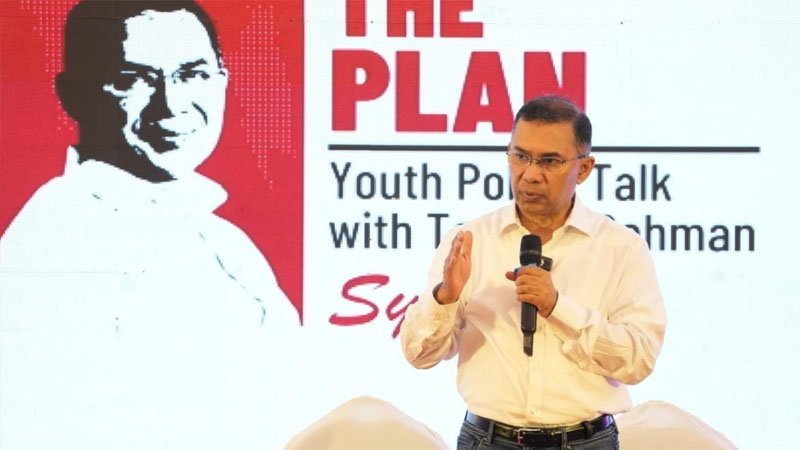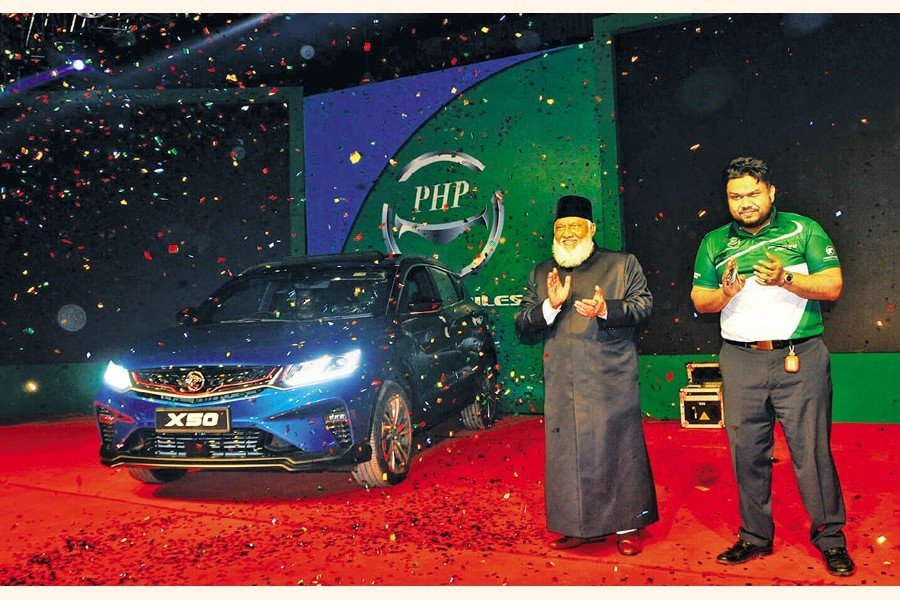From BUET to Saudi Arabia: Asif Azad’s Inspiring Journey in AI in Healthcare

Asif Joins Saudi Arabia’s Ministry of Defence
In a remarkable feat, Asif Azad, a recent graduate of Computer Science and Engineering from BUET (Bangladesh University of Engineering and Technology), has earned international recognition by joining the Kingdom of Saudi Arabia’s Ministry of Defence (MoD) as an AI engineer in health services. Originally from Madaripur, Asif’s educational journey from Faridpur Zilla School to Jhenaidah Cadet College and eventually BUET shaped his path toward the frontier of AI in healthcare—especially in mental health domains such as autism and PTSD.
Early Life and Academic Formation
Asif Azad’s roots trace back to Madaripur, where he received his primary education. He then went on to complete his secondary schooling at Faridpur Zilla School, followed by his higher secondary studies at Jhenaidah Cadet College. His academic excellence and curiosity led him to BUET, where he enrolled in the CSE program. Over time, his fascination with artificial intelligence (AI) and machine learning (ML) deepened, and he devoted himself to honing technical skills, engaging in competitions, research, and real-world experimentation.
During his third and fourth years, Asif participated actively in datathons and coding contests, exposing himself to state-of-the-art AI architectures and challenge problems. One defining moment was winning the Deep Learning Sprint 2.0 (2023) during BUET’s CSE Fest, where Asif’s team “Black Quad” topped both public and private leaderboards with a document layout analysis project using transformer models. That victory affirmed his readiness to work on ambitious problems in AI in healthcare.
Landing the International Role
Asif’s leap into an international position came through a mix of mentorship, opportunity, and serendipity. His thesis advisor, Dr. Mohammad Saifur Rahman (a former Microsoft engineer), had connections in the world of health AI. Prior to graduation, Dr. Rahman shared a job opening with Asif from Dr. Ehsan Hoque (University of Rochester), who was building an AI innovation team under Saudi Arabia’s MoD focused on health services.
Despite a brief interview and initial hesitation, Asif was later selected for the role, making him one of the youngest AI engineers working remotely for a government entity abroad. His peers from BUET also followed suit, expanding the talent bridge between Bangladesh and global AI in healthcare efforts.
Work Focus: AI in Healthcare for Autism & PTSD
As an AI engineer in health services, Asif’s current focus lies in applying AI in healthcare to two critical areas: autism support and post-traumatic stress disorder (PTSD). He collaborates closely with therapists, medical centers, and research institutions to deploy advanced tools that complement—and in some scenarios extend—the reach of traditional therapeutic methods.
Autism Intervention Tools
Children with autism often face significant communication challenges, and many regions lack enough therapists to meet demand. Asif’s team is developing AI systems powered by large language models (LLMs), vision-language models (VLMs), and multimodal architectures. These systems aim to provide augmentative communication aids, assist in behavioral assessments, and offer semi-supervised interaction modules that therapists can supervise and extend.
PTSD Support Systems
PTSD patients often suffer from recurring trauma, intrusive thoughts, flashbacks, nightmares, and emotional dysregulation. The AI tools under development include conversational agents, scenario simulation modules, and emotion-aware feedback systems. These tools are designed to supplement therapy, allowing patients to practice coping strategies between sessions and enabling therapists to monitor progress remotely.
In both domains, the challenge is less about having powerful models than about ensuring data privacy, clinical validity, interpretability, and ethical use—hallmarks of trustworthy AI in healthcare.
Technical Infrastructure & Remote Workflow
Given that Asif works remotely for a Saudi defense-affiliated health AI unit, collaboration, infrastructure, and ethical frameworks play critical roles.
-
Cloud and GPU resources: The team leverages cloud platforms (like Azure and Alibaba) with data centers located in Saudi Arabia. This ensures low-latency computing, compliance with data laws, and secure environments.
-
Team communication: The distributed team meets regularly (2–3 times a week) via video conferencing, with close coordination between clinicians, data scientists, and research leads.
-
Ethics and compliance: Any AI model that handles sensitive patient data or interacts with users must pass strict oversight—such as Institutional Review Board (IRB) or equivalent ethical bodies. Consent, anonymization, and auditability are non-negotiable.
-
Iterative development: Rather than building all models from scratch, the team often begins with existing pretrained models (for text, vision, or multimodal inputs) and fine-tunes them with anonymized and validated domain-specific data. This accelerates progress while respecting safety constraints.
Challenges & Lessons Learned
Asif’s path and current role also come with considerable challenges and revelations, especially relevant for aspiring AI in healthcare practitioners:
-
Data scarcity and sensitivity: Medical and mental health datasets are hard to obtain, heavily regulated, and often limited in size. This constrains model generalization and demands creative approaches (data augmentation, federated learning, transfer learning).
-
Expectation vs. reality of interviews: Asif admitted he initially thought his interview was poor and did not pursue follow-up. Yet, the opportunity came to him nevertheless—showing that confidence and unexpected chances matter.
-
Balancing domain knowledge and technical chops: While domain expertise (psychology, psychiatry, therapy) is valuable, Asif emphasized that a strong technical foundation allows one to adapt and acquire domain knowledge.
-
Ethical rigor is paramount: In health and defense contexts, misuse or bias can have grave consequences. The team holds each tool to high standards of transparency, audit trails, and human oversight.
-
Remote work tradeoffs: The absence of spontaneous in-person brainstorming can be a downside, but remote work gives flexibility and wider hires. Asif notes the team tries to simulate closeness via structured communication.
Broader Implications & Significance
Asif Azad’s role is significant not just personally but symbolically for Bangladesh’s tech and educational potential. It illustrates how graduates from institutions like BUET can make direct contributions in global AI in healthcare spaces, especially in areas of mental health where impact is urgent and large.
His success also underscores the importance of mentorship, referrals, and proactive engagement in research and competitions for students. Asif often cites Dr. Saifur Rahman and Dr. Ehsan Hoque as pivotal connectors and guides in his journey.
Moreover, his trajectory encourages Bangladesh’s academic and research communities to strengthen health-AI platforms, foster interdisciplinary collaborations, and nurture pipelines that send ready talent to global stages.
Advice for Aspiring AI in Healthcare Engineers
Drawing from Asif’s experience, here are key takeaways:
-
Build a strong technical foundation: Understand fundamentals of machine learning, deep learning, transformers, and multimodal AI.
-
Engage in competitions & research early: Datathons, Kaggle, research projects help you stand out and sharpen applied skills.
-
Seek mentors and networks: A single well-placed referral or advisor can unlock unexpected doors.
-
Prioritize ethics and domain safety: Especially in healthcare, any AI work must maintain privacy, explainability, and user safety.
-
Be flexible and adaptive: Technologies evolve rapidly—learning to quickly adapt to new models, tools, and problem domains is crucial.
-
Communicate across disciplines: Effective AI in healthcare requires bridging technical, clinical, and user-facing domains—so soft skills and domain literacy help.
Asif Azad’s journey—from Madaripur to BUET to building AI in healthcare solutions for the Saudi Ministry of Defence—is a testament to talent, preparation, and strategic opportunity. Through his focus on autism and PTSD, he’s leveraging AI in healthcare not just as a buzzword, but as a real tool to mitigate therapeutic gaps and expand access to vulnerable populations.
His story also stands as inspiration: that graduates from Bangladeshi institutions can not only compete globally, but also contribute meaningfully to high-stakes interdisciplinary domains. As AI in healthcare continues to grow, voices like Asif’s will shape its direction—painstakingly, ethically, and with human-centered vision.






